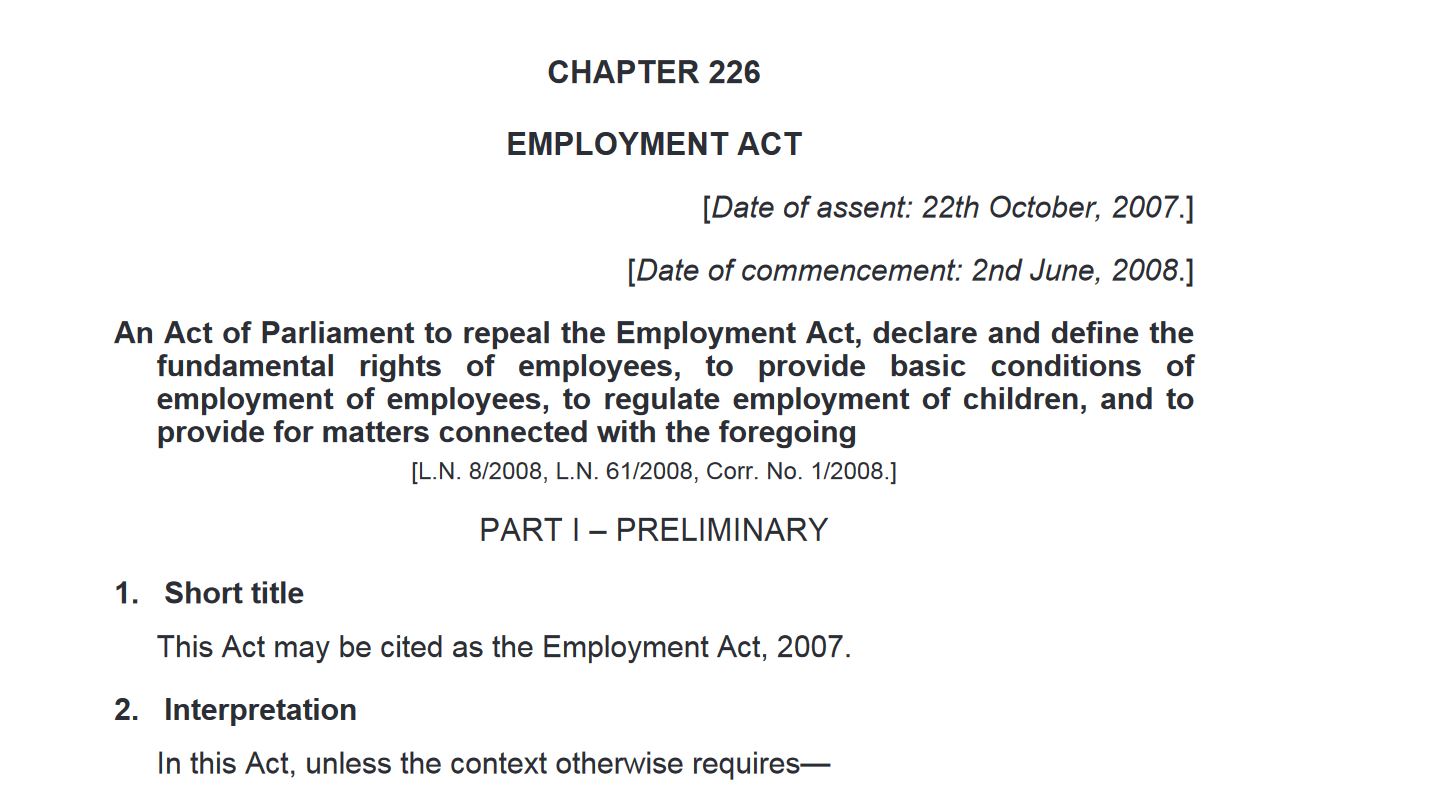Employee Rights in Kenya and Labor Laws: Many employees work their finger to the bone oblivious of their rights. As a result, many employers exploit their workers and end up raking in a fortune while their employees are underpaid, overworked, and suffer under unsuitable working conditions. Here is a breakdown of some of the grounds for suing your employer.

Suing Employer for Lack of Leave Days
Employers are supposed to give leave days to their employees. This applies to employees who have worked for 12 consecutive months. According to the Employment Act, section 28, employers should give their employees an annual leave of twenty-one working days. During this period, the employee is entitled to full pay.
Suing Employer for Long Working Hours
The Kenya Labor Laws state that the normal working hours per week are 45 hours. A person who has a night job is not supposed to work for more than 60 hours per week. If an employee exceeds the normal working hours, they are entitled to be paid extra for overtime. The rates for overtime are one and one half hourly rates during the weekday and twice the normal hourly rate on Sundays and during public holidays. Additionally, employees should have a weekly rest day after they have worked for six consecutive days.
Suing Employer for Lack of Maternity Leave
According to the Employment Act 2007, a female worker should be given three months of maternity leave after they give birth. Furthermore, they should receive their full salary during the duration of the maternity leave.
Suing Employer for Discrimination
Discrimination is frowned upon in the Employment Act. The Act prohibits discrimination against a worker on the basis of language, sex, religion, race, color, political opinion, ethnic origin, nationality, mental status, disability, HIV status, or pregnancy.
Suing Employer for Unfair Remuneration (Salary)
The Kenyan constitution further holds that all human beings are created equal and are equal in the eyes of the law. With this regard, the constitution requires that employees receive fair remuneration. Every employer should ensure that workers are equally paid for work of equal value. Discrimination in terms of remuneration is punishable by law.
Occupational Safety and Health
As an employee, the Employment Act, Occupational Safety and Health Act, Labor Relations Act, and Work Injury Benefits Act are some of the statutes that protect you against unfair treatment by your employer. If your employer has violated any of the above employee rights, you can pursue a legal claim against them. However, it is advisable to try and settle the matter out of court first since these cases could take time and money before they are finalized.

Leave a Comment